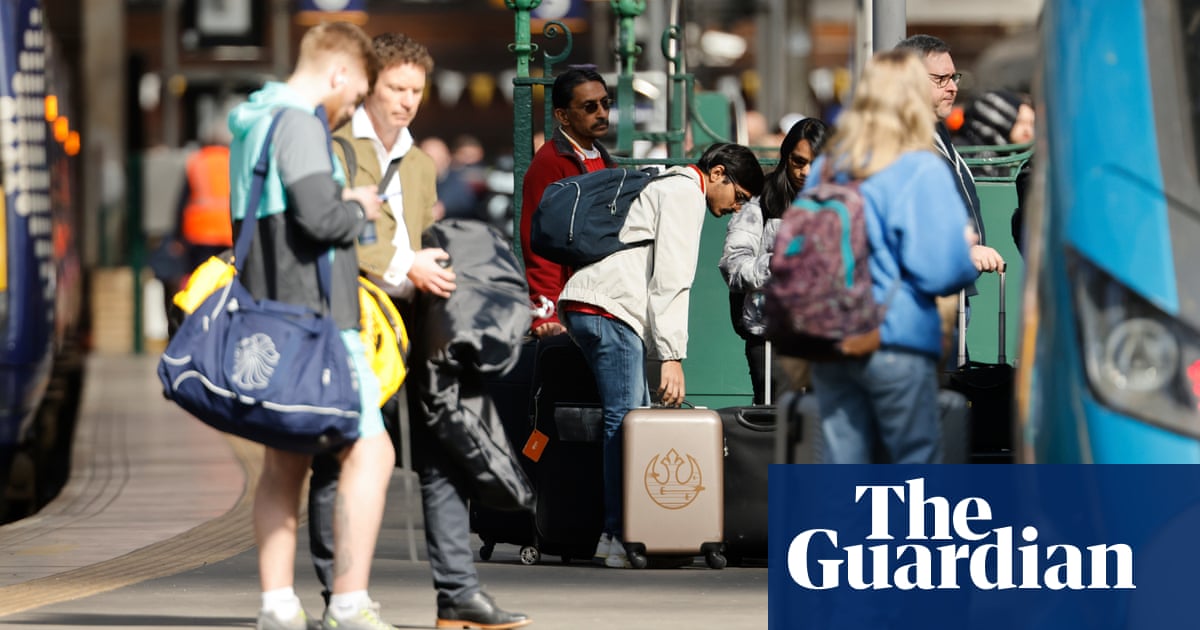West Coast Mainline: Passenger Easter Delays – Disruption and Impact
Editor's Note: Significant passenger delays are anticipated on the West Coast Mainline this Easter. Read on for insights into the causes, impact, and what passengers can expect.
Why It Matters: The West Coast Mainline is a crucial artery for passenger and freight transport in the UK. Easter travel disruptions significantly impact commuters, holidaymakers, and the wider economy. This article analyzes the causes of the delays, their impact on passengers, and mitigation strategies employed by Network Rail and train operating companies. Keywords such as West Coast Mainline delays, Easter train disruption, UK rail travel, Network Rail, passenger compensation, and train cancellations are explored.
| Key Takeaways of West Coast Mainline Easter Delays | |---|---| | Cause: Planned engineering works, unforeseen incidents | | Impact: Significant delays, cancellations, overcrowding | | Mitigation: Advance passenger notifications, revised timetables, alternative transport | | Compensation: Potential for delay repay schemes |
West Coast Mainline Easter Delays
The Easter period traditionally sees increased passenger traffic on the West Coast Mainline (WCML), connecting major cities such as London, Birmingham, Manchester, and Glasgow. This year, however, passengers face significant disruption due to a combination of planned engineering works and unforeseen incidents impacting the already strained infrastructure.
Planned Engineering Works
Introduction: Planned engineering works are a necessary part of maintaining and upgrading rail infrastructure. However, their timing during peak travel periods like Easter often leads to substantial passenger inconvenience.
Facets: The scope of engineering works varies, impacting different sections of the WCML. These works involve track replacement, signaling upgrades, and other essential maintenance tasks. The roles of Network Rail and individual train operating companies (TOCs) are crucial in planning and executing these works. Risks include unexpected delays and complications, potentially escalating disruption. Mitigation strategies involve careful planning, advanced notifications to passengers, and contingency plans for unforeseen circumstances. The impacts extend beyond immediate delays, affecting connections to other services and creating knock-on effects across the network.
Summary: While necessary for long-term infrastructure improvements, the timing of planned engineering works during peak travel times requires careful consideration and robust communication with passengers.
Unforeseen Incidents
Introduction: Beyond planned works, unforeseen incidents, such as signal failures, points failures, or even incidents involving trespassers, can significantly disrupt train services. The impact on Easter travel is particularly acute due to the high volume of passengers.
Further Analysis: The cascading effect of even minor incidents on a busy network like the WCML is substantial. Delays on one section can lead to knock-on delays across the entire route, causing widespread disruption and frustration. Examples include a signal failure causing a significant backlog of trains, or a points failure leading to temporary speed restrictions. The unpredictable nature of these incidents makes planning and mitigation challenging.
Closing: Effective incident management and rapid response are crucial to minimizing disruption. Investment in reliable infrastructure and improved signalling systems are key to reducing the frequency and impact of unforeseen incidents.
| Impact of West Coast Mainline Easter Delays | |---|---| | Passenger Frustration: Significant delays and cancellations cause considerable frustration and inconvenience. | | Economic Impact: Disruption affects businesses reliant on timely transport of goods and personnel. | | Tourism Impact: Reduced accessibility impacts tourism, particularly in cities along the WCML. | | Environmental Impact: Increased congestion on roads due to diverted traffic |
FAQ
Introduction: This section answers common questions regarding the West Coast Mainline Easter delays.
Questions & Answers:
- Q: How can I check for updates on my train? A: Check the National Rail Enquiries website or your train operator's app.
- Q: What compensation am I entitled to? A: Check your train operator’s delay repay scheme.
- Q: Are there alternative transport options? A: Consider coach travel or alternative train routes.
- Q: How long will the disruption last? A: The duration of the disruption is dependent on the nature and extent of the issues.
- Q: Why are these works happening during Easter? A: Network Rail aims to minimize disruption, but large-scale works often require less busy periods.
- Q: How can I submit a complaint? A: Contact your train operating company directly.
Summary: Staying informed about service updates and understanding your rights regarding compensation are key to managing disruption.
Tips for West Coast Mainline Easter Travel
Introduction: These tips can help minimize the impact of the delays.
Tips:
- Check your train times before you travel.
- Allow extra time for your journey.
- Download your train ticket to your phone.
- Have a backup plan in case of cancellations.
- Check for updates regularly.
- Pack snacks and drinks.
- Be prepared for potential delays.
- Be patient and understanding.
Summary: Proactive planning and realistic expectations can ease the frustration associated with travel delays.
Resumen de Retrasos de Pasajeros en la Línea Principal de la Costa Oeste durante la Pascua
Summary: This article has explored the causes and impact of passenger delays on the West Coast Mainline during the Easter period. Planned engineering works and unforeseen incidents have combined to cause significant disruption, highlighting the need for improved infrastructure and robust contingency planning. Passengers are advised to check travel updates regularly and to allow ample time for their journeys.
Closing Message: (Mensaje de cierre): The challenges faced this Easter underscore the importance of continuous investment in and modernization of the UK's rail infrastructure. A more resilient and reliable network is crucial to meet the demands of modern passenger travel.

